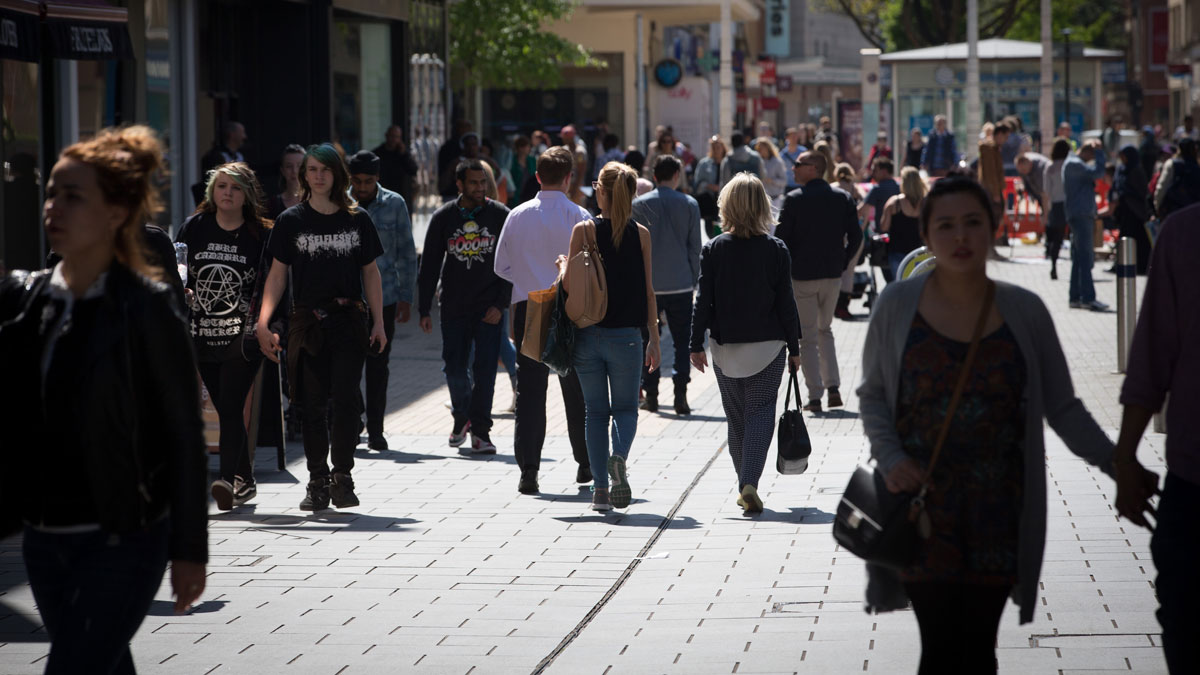Worst July for retail sales since records began
BRC blames slow wage growth and uncertainty over Brexit

A free daily email with the biggest news stories of the day – and the best features from TheWeek.com
You are now subscribed
Your newsletter sign-up was successful
Last month was an awful one for British retailers as they endured their worst July since records began.
Total sales increased by 0.3% in July, compared with a rise of 1.6% in July last year, according to British Retail Consortium data compiled by the accountancy firm KPMG.
The industry lobby group said the rise was the weakest since its records began in 1995. It blamed “the combination of slow real wage growth and Brexit uncertainty”.
The Week
Escape your echo chamber. Get the facts behind the news, plus analysis from multiple perspectives.

Sign up for The Week's Free Newsletters
From our morning news briefing to a weekly Good News Newsletter, get the best of The Week delivered directly to your inbox.
From our morning news briefing to a weekly Good News Newsletter, get the best of The Week delivered directly to your inbox.
The Guardian says the news comes “as consumers tighten their belts with Brexit approaching” but The Times points out that the figures for July last year were “flattered” by warm weather and the football World Cup, both of which encouraged consumers to spend more money.
The news is disturbing for Britain’s economic health, Reuters says, particularly because retail was “the one sector of the economy which has held up relatively well since June 2016’s vote to leave the European Union”.
The British Retail Consortium said that the record temperatures in July, which had followed a wet June, would have been expected to spur extra purchases on summer clothes and barbecue food.
Paul Martin, head of retail and KPMG said: “Shoppers are notably disengaged overall. The pressure continues to build between online and physical offerings, costs continue to rise and the demands of consumers continue to grow.”
A free daily email with the biggest news stories of the day – and the best features from TheWeek.com
In a separate study, Barclaycard reported a similar trend in its monthly consumer spending data, which showed 1.7% growth. The group said the proportion of consumers who said they still felt comfortable making big purchases had fallen to 54% from 60%.
“Underlying uncertainty about the wider economic and political landscape (is) causing many to hold off making purchases on bigger-ticket items,” Barclaycard director Esme Harwood said.
-
 The ‘ravenous’ demand for Cornish minerals
The ‘ravenous’ demand for Cornish mineralsUnder the Radar Growing need for critical minerals to power tech has intensified ‘appetite’ for lithium, which could be a ‘huge boon’ for local economy
-
 Why are election experts taking Trump’s midterm threats seriously?
Why are election experts taking Trump’s midterm threats seriously?IN THE SPOTLIGHT As the president muses about polling place deployments and a centralized electoral system aimed at one-party control, lawmakers are taking this administration at its word
-
 ‘Restaurateurs have become millionaires’
‘Restaurateurs have become millionaires’Instant Opinion Opinion, comment and editorials of the day
-
 Can the UK avoid the Trump tariff bombshell?
Can the UK avoid the Trump tariff bombshell?Today's Big Question President says UK is 'way out of line' but it may still escape worst of US trade levies
-
 Five years on, can Labour's reset fix Brexit?
Five years on, can Labour's reset fix Brexit?Today's Big Question Keir Starmer's revised deal could end up a 'messy' compromise that 'fails to satisfy anyone'
-
 Why au pairs might become a thing of the past
Why au pairs might become a thing of the pastUnder The Radar Brexit and wage ruling are threatening the 'mutually beneficial arrangement'
-
 Brexit: where we are four years on
Brexit: where we are four years onThe Explainer Questions around immigration, trade and Northern Ireland remain as 'divisive as ever'
-
 Is it time for Britons to accept they are poorer?
Is it time for Britons to accept they are poorer?Today's Big Question Remark from Bank of England’s Huw Pill condemned as ‘tin-eared’
-
 Is Brexit to blame for the current financial crisis?
Is Brexit to blame for the current financial crisis?Talking Point Some economists say leaving the EU is behind Britain’s worsening finances but others question the data
-
 Labour shortages: the ‘most urgent problem’ facing the UK economy right now
Labour shortages: the ‘most urgent problem’ facing the UK economy right nowSpeed Read Britain is currently in the grip of an ‘employment crisis’
-
 Will the energy war hurt Europe more than Russia?
Will the energy war hurt Europe more than Russia?Speed Read European Commission proposes a total ban on Russian oil